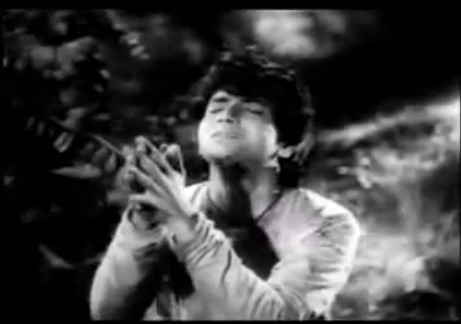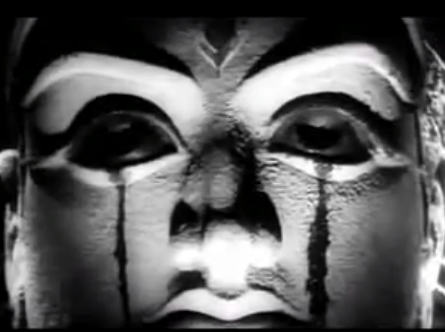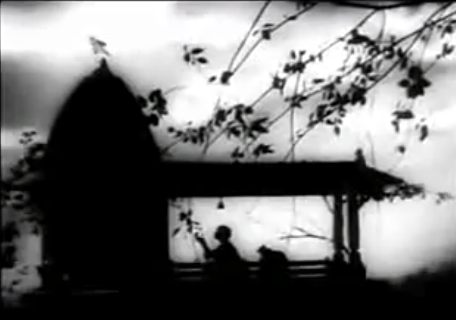On April 15, 2013, an unspeakable tragedy hit my current hometown of Boston when two bombs were set off at the finish line of the Boston Marathon. This annual event held on Patriot’s Day attracts nearly 500,000 spectators who come to watch amateur and professional runners from all over the world. Considered one of the largest acts of terrorism ever to strike Boston, the marathon bombings killed 3 individuals and wounded nearly 300 victims. Tragedy is always unsettling, but these attacks have been particularly difficult to grapple with because of their proximity to home. As the local community finds the strength to overcome, our thoughts and prayers at Mr. and Mrs. 55 are with all those who were affected by this senseless act of violence in Boston.
Five days after the attack, a harrowing manhunt for one of the suspects at large put the entire city of Boston on lockdown with a “shelter in place” order for all residents. Within the safe confines of my dorm at Harvard, I found comfort during this time in old Hindi film songs–something familiar and close to my heart. In the aftermath of this tragedy, there was one song in particular that resonated deeply with my state of mind: o duniyaa ke rakhvaale from Baiju Bawra (1952). In commemoration of the victims of the Boston Marathon bombings, we offer the lyrics and English translation to this timeless devotional classic.
Composed by Naushad in the somber and grave raga Darbari Kanada, this evergreen number from Baiju Bawra (1952) is one of Mohammed Rafi’s best renditions. His pathos-laden voice navigates through a difficult melody spanning nearly two octaves that culminates in a high Bb4 (taar shuddh ma in the key of F) during the final climax. In light of the recent tragedy, however, we will focus on the message presented by Shakeel Badayuni’s lyrics. Without using elevated vocabulary, Badayuni masterfully captures the essence of an important philosophical maxim that may help us cope with the recent events: the reconciliation of opposites. Expressed as frustration and anger, the song’s protagonist struggles to accept the contradictory nature of the world he inhabits. Why were storms created along with ships? Why must we be separated from our loved ones after being united? Why does hope exist along with despair? And ultimately, why was evil created along with good?
Failing to find adequate responses to these difficult questions, the protagonist lashes out in grievance against his Lord. Indeed, Badayuni makes a bold move in the context of a bhajan by having the protagonist refer to his Lord as harjaayii (unfaithful, betrayer). The protagonist’s frustration is understandable given that everything familiar to him in this world has turned against him. Using metaphorical imagery, Badayuni describes this feeling through the transformation of conventional entities: rain into fire, flowers into embers, night into snake, and stars into stones. The lyrics continue to take a few unconventional turns when the protagonist asks the Lord to take his life (“jiivan apnaa vaapas le le, jiivan denevaale“) and when the devotee subversively offers his blessings to the Lord (“bhagvaan bhalaa ho teraa!”) in sardonic resignation.
At their core, these lyrics encourage the listener to appreciate the value of prajna, a Sanskrit term used to describe the wisdom of non-duality. Based on the fundamental reconciliation of dual phenomena, this worldview posits that the demarcation of polar opposites leads to further conflict and suffering. Instead of placing last week’s tragic events within a framework of good versus evil, valuing prajna instructs us to focus our energy on reflection and the discovery of underlying causes. Additionally, in Shakeel Badayuni’s words, we must not lose hope in the face of misfortune (“qismat TuuTii aas na TuuTii) as we rise above our differences and provide support to one another in this trying time of need.
Here at Mr. and Mrs. 55, we would like to reiterate our deepest condolences and sympathies to all those in our community and beyond who were affected by the recent Boston Marathon attacks. For those who are interested, we encourage donations to One Fund Boston, a charitable organization established by Mayor Thomas Menino and Gov. Patrick Deval to support the victims of this tragedy. Stay strong, Boston!
-Mr. 55
O Duniya Ke Rakhwale: Lyrics and Translation
bhagvaan, bhagvaan, bhagvaan!
Oh Lord!
o duniyaa ke rakhvaale! sun dardbhare mere naale
Oh protector of this world! Please heed my woeful lamentations.
aash niraash ke do rango.n se duniyaa tuu ne sajaayii
You have adorned this world with the two colors of hope and despair.
naiyaa sang tuufaan banaayaa, milan ke saath judaayii
You created the storm along with the boat, separation along with union.
jaa dekh liyaa harjaayii
Lord, I have witnessed your betrayal.
o luuT gayii mere pyaar ki nagarii, ab to niir bahaa le
Oh! My city of love has been plundered; now shed a few tears upon my plight.
aag banii saavaan kii barkhaa, phuul bane angaare
The monsoon rains have turned into fire, while the flowers have become embers.
naagin ban gayii raat suhaanii, patthar ban gaye taare
The beautiful night has become a snake, while the stars have turned into stones.
sab TuuT chuke hai.n sahaare
All of my support has been lost.
o jiivan apnaa vaapas le le, jiivan denevaale
Oh provider of life! Please take back this life from me.
chaa.nd ko Dhuu.nDe paagal suuraj, shaam ko Dhuu.nDe saveraa
The mad Sun seeks the Moon, while the morning searches for the night.
mai.n bhii Dhuu.nDuu.n us priitam ko ho na sakaa jo meraa
I too search for the beloved who could not be mine.
bhagvaan bhalaa ho teraa!
Lord, may you be blessed!
o qismat phuuTii aas na TuuTii, paa.nv me.n paD gaye chhaale
Oh! I have suffered misfortune without losing hope, though my feet have become sore with blisters.
mahal udaas aur galiyaa.n suunii, chup-chup hai.n diivaare.n
The palace is forlorn with its deserted alleys and silent walls.
dil kyaa ujaDaa, duniyaa ujaDii, ruuTh gayii hai.n bahaare.n
My heart has been ravaged, my entire world has been destroyed, and even the new spring sulks in displeasure.
ham jiivan kaise guzaare.n?
How can I spend my life like this?
o mandir girtaa phir ban jaataa, dil ko kaun sambhaale?
Oh! Fallen temples can be rebuilt, but who can mend my broken heart?
o duniyaa ke rakhvaale! sun dardbhare mere naale
Oh protector of this world! Please heed my woeful lamentations.
Glossary
bhagvaan: Lord; duniyaa: word; rakhvaalaa: protector; dardbharaa: woeful; naale: lamentation; aash: hope; niraash: despair; sajaanaa: to adorn; naiyaa: boat; tuufaan: storm; milan: union; judaayii: separation; harjaayii: betrayer, unfaithful one; luuT jaanaa: to be plundered; nagrii: city, town; niir bahaanaa: to shed tears; aag: fire; saavan: monsoon; barkhaa: rain; naagin: snake (female); suhaanii: lovely, beautiful; sahaaraa: support; jiivan: life; vaapas lenaa: to take back; denevaalaa: provider; chaa.nd; Moon; paagal: mad, crazy; suuraj: Sun; shaam: evening, night; saveraa: morning; priitam: beloved; “(kisii kaa) bhalaa ho!“: an expression used to indicate the offering of blessings to someone; chhaalaa: blister; mahal: palace; udaas: sullen, forlorn; galii: alley; suunaa: empty, deserted; chup-chaap: silent; diivaar: wall; ujaDnaa: to be uprooted, ravaged or destroyed; ruuTh jaanaa: to sulk; bahaar: spring; jiivan guzaarnaa: to spend life; mandir: temple; sambhaalnaa: to manage, mend.




